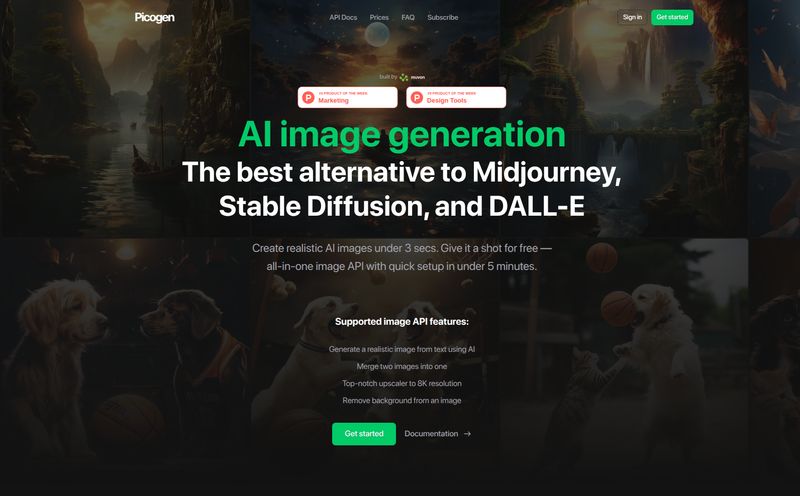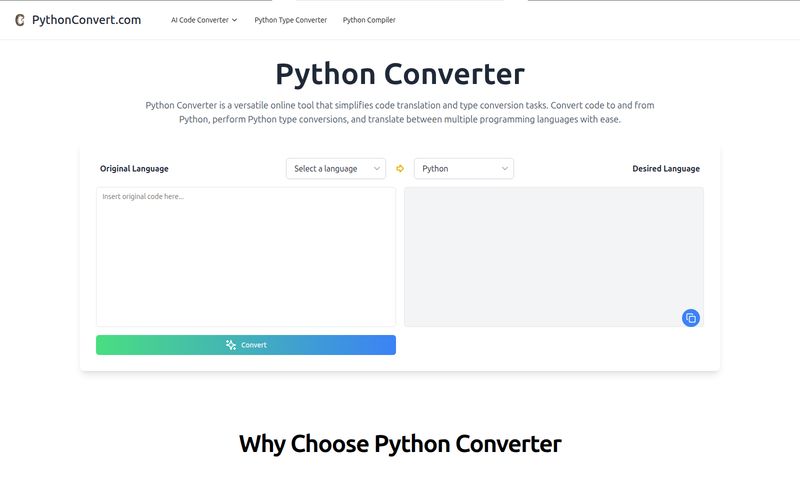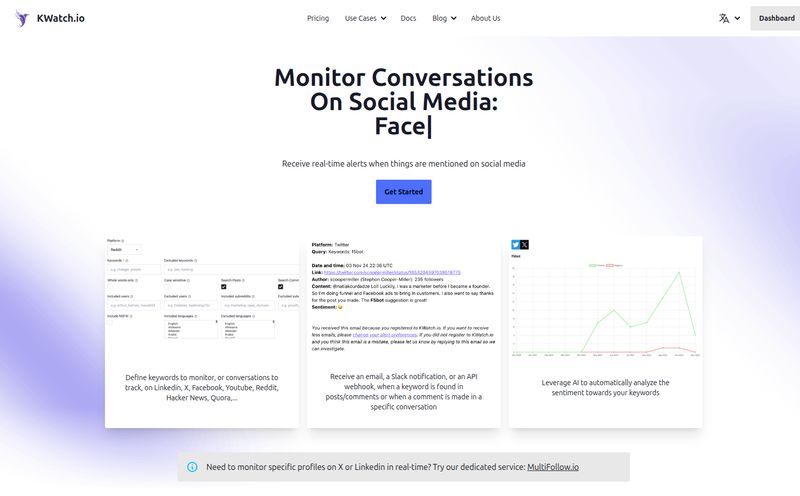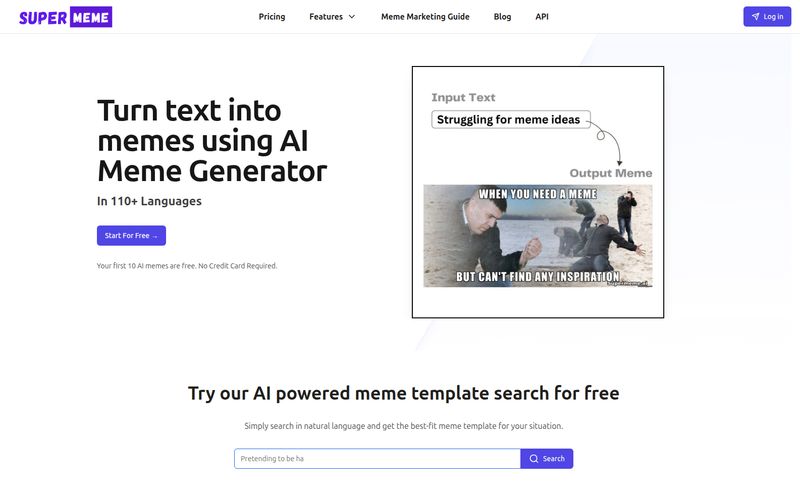We've all had that heart-sinking moment. You're knee-deep in a project, maybe doing a quick audit or chasing a weird bug, and you stumble upon an API endpoint that's... chatty. A little too chatty. It’s spitting out user emails, location data, or something else that has no business being there. Your stomach does a little flip. That, my friends, is the cold sweat of potential API data leakage.
In my years bouncing between SEO, traffic gen, and peeking under the hood of websites, I’ve seen this story play out more times than I can count. APIs are the backbone of the modern web, but they're also a massive, often-overlooked, attack surface. With regulations like GDPR and CCPA breathing down our necks, a leaky API isn't just bad practice; it's a seven-figure lawsuit waiting to happen. So when I heard about a platform called API Privacy by PerfAI that uses AI to automate this whole mess, my curiosity was definitely piqued.
Is it just another tool promising the world, or is it something that could actually let developers and compliance teams sleep a little better at night? I had to find out.
What Exactly is This API Privacy Platform?
At its core, API Privacy is an AI-powered watchdog for your APIs. Think of it less like a security gate and more like a super-intelligent filtration system for the river of data flowing through your applications. It’s designed to continuously monitor your APIs (web, mobile, public, you name it), automatically detect sensitive privacy data, and catalog everything so you have a clear, undeniable record of what’s going where.
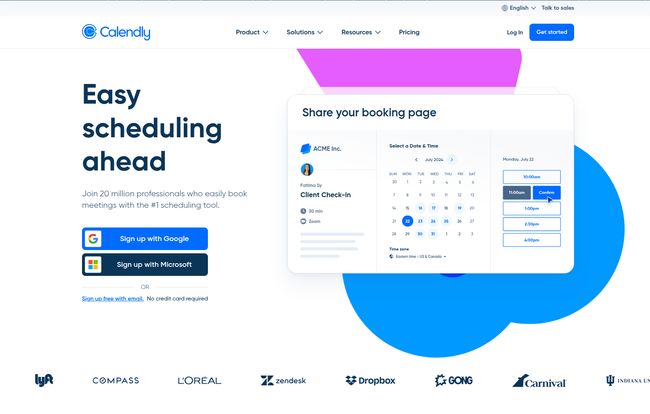
Visit API Privacy
It’s not just about flagging Personally Identifiable Information (PII) after the fact. The whole idea is to build a safety net that catches issues early, enforces your privacy rules consistently, and gives everyone—from the developer writing the code to the C-suiter reading the compliance report—a single source of truth. No more frantic spreadsheet searches or Slack DMs trying to figure out if an endpoint is clean. It’s a pretty compelling pitch.
The Core Features That Caught My Eye
A good pitch is one thing, but the devil is always in the details. Here’s what stood out to me when I looked at what API Privacy actually does.
Automated API Privacy Detection
This is the bread and butter of the platform. The AI engine is constantly scanning your APIs to find and classify privacy data. We’re talking the obvious stuff like names, emails and phone numbers, but also the more subtle data points that can get you in trouble. It’s the kind of tedious, soul-crushing work that’s perfect for a machine to handle. Manually auditing hundreds or thousands of endpoints is a recipe for missed vulnerabilities and burnout. Automating this doesn't just save time; it dramatically reduces the risk of human error.
A Centralized API Privacy Catalog
Okay, this part got me excited. One of the biggest chaos-factors in any tech organization is the lack of a definitive record. The API Privacy tool creates a living, breathing catalog of all your API privacy data. It documents, tags, and maintains a history of every bit of sensitive information it finds.
For a developer, this means you can instantly see the privacy implications of the code you're working on. For a compliance team, it's a golden ticket—an organized, searchable, and auditable log of your entire data footprint. It’s a bridge between two departments that, historically, don't always speak the same language. This alone could be worth the price of admission.
Enforcing Security Standards from the Get-Go
Here’s where things get really smart. The platform isn’t just about detection; it’s about prevention. By empowering developers with these tools, it helps bake privacy into the development cycle from the start. This is the whole “shift-left” security model everyone’s talking about, and for good reason. It's infinitely cheaper and easier to fix a privacy flaw before it ever hits production.
For larger teams, the enterprise plan even integrates with GitHub Actions and CI/CD pipelines. This means privacy checks can become an automated part of your build process, just like unit tests. It stops being a chore and starts being part of the natural workflow. That's how you build a real culture of security.
So, How Much Does This Peace of Mind Cost?
Alright, the all-important question. Is this going to break the bank? I was pleasantly surprised by the pricing structure. It seems designed to scale with you, which is always a good sign.
| Plan | Price | Best For | Key Features |
|---|---|---|---|
| Starter | $0 /mo | API Startups | 100 endpoints, 10 APIs, PII detection, catalog, alerts, and enforcement of industry standards. |
| SMB | $99 /mo | Small to Medium Businesses | 200 endpoints, 10 APIs, supports PII and more, plus everything in Starter with email support. |
| Enterprise | Custom Quote | Large Organizations | Over 200 endpoints, 20+ APIs, GitHub & CI/CD integration, full support. The typo 'Pricacy Data Catalog' was in their own data, which is kinda funny. |
My two cents? The Starter plan is a complete no-brainer. A free tier that offers this much value is rare, and it's perfect for any startup or developer wanting to build good habits from day one without a budget. The SMB plan at $99 a month feels very reasonable. When you compare that to the average cost of a data breach—which IBM's 2023 report pegs at a staggering $4.45 million—it’s basically a rounding error. For enterprise clients, the custom quote is standard practice, and the CI/CD integration is the real prize there.
The Good, The Bad, and The Realistic
No tool is perfect, right? It's important to look at this with open eyes. Here's my honest breakdown.
The Good Stuff
The pros are pretty clear. The automation is a massive win, saving countless hours and reducing risk. The accuracy of AI-driven detection is a leap beyond manual checks. Giving compliance teams clear visibility while empowering developers to own privacy is a brilliant move that can actually shift company culture. I've seen way too many companies where security is seen as the 'department of no'. Tools like this turn it into a shared responsibility.
A Dose of Reality
On the flip side, while the free tier is great, the jump to paid plans could be a hurdle for some bootstrapped startups once they scale beyond the initial limits. It's an investment, for sure. The other thing to keep in mind is the reliance on AI. As much as I love our new machine overlords, they aren’t infallible. You can't just set it and forget it entirely. You'll still want a human to do occasional reviews and sanity checks to ensure the AI's classifications make sense for your specific context. It’s a powerful assistant, not a replacement for expertise.
Who is This Tool Actually For?
I see a few clear winners here. If you're a startup founder, the free plan is your new best friend. Start clean, stay clean. For a dev team at an SMB, the $99 plan is an easy justification. The time your team gets back from not having to do manual privacy audits will pay for the subscription in the first month. And if you're a CISO or Compliance Officer at a large company, the enterprise version is designed for you. The risk mitigation, reporting, and large-scale governance capabilities are precisely what you need to answer those tough questions from the board.
Basically, if you build, manage, or consume APIs and care about not getting sued into oblivion or appearing on the front page of TechCrunch for a data breach, this is probably relevant to you.
Frequently Asked Questions
Here are a few things you're probably wondering.
What kind of data does API Privacy detect besides PII?
The platform is designed to find more than just the basics. While it excels at finding PII (names, SSNs, emails), the SMB and Enterprise tiers are built to detect a broader range of sensitive data, which could include financial info, health data (PHI), or other proprietary business data depending on configuration.
How does this tool integrate into a developer's workflow?
The goal is to be as seamless as possible. For day-to-day use, the API catalog provides instant insight. For Enterprise users, the CI/CD integration is key, allowing privacy checks to run automatically whenever new code is pushed, flagging issues before they ever get deployed.
Is API Privacy compliant with regulations like GDPR and CCPA?
The tool itself doesn't make you compliant, but it's a massive step in the right direction. It gives you the visibility and enforcement mechanisms needed to adhere to the data minimization and protection principles at the heart of regulations like GDPR. It's a core component of a modern compliance stack.
Can I try it before committing to a paid plan?
Absolutely. The free Starter plan is pretty generous and is the perfect way to test out the core functionality and see if it’s a good fit for your organization.
Does it work with third-party APIs we consume?
The primary focus is on the APIs you build and control, as it monitors them directly. However, the data catalog can serve as a central place to document the data types handled by third-party APIs you integrate with, helping maintain a complete picture of your data ecosystem.
My Final Thoughts
In a world where, according to Postman's latest State of the API report, developers are spending more time than ever working with APIs, security can no longer be an afterthought. Tools like PerfAI's API Privacy feel less like a luxury and more like a necessity.
It’s a practical, developer-friendly approach to a problem that has, for too long, been treated with a mix of fear and spreadsheets. By automating the grunt work and providing a clear path to better security hygiene, it helps teams move faster and safer. And in this business, that’s the name of the game. It's not just about avoiding fines; it's about building trust with your users, and you can't put a price on that.
Reference and Sources
- Product Information & Demo Booking: perfai/privacy on Calendly
- IBM Cost of a Data Breach Report 2023: https://www.ibm.com/reports/data-breach
- General Data Protection Regulation (GDPR) Overview: https://gdpr.eu/
- Postman 2023 State of the API Report: https://www.postman.com/state-of-api/
